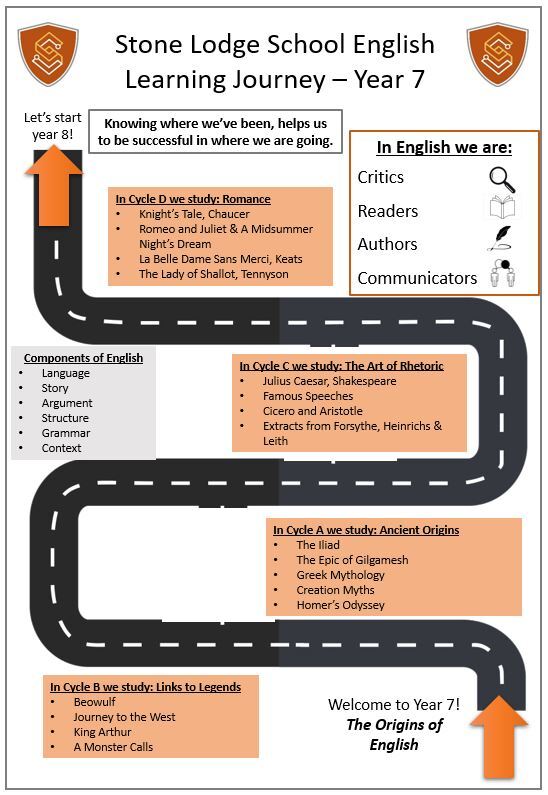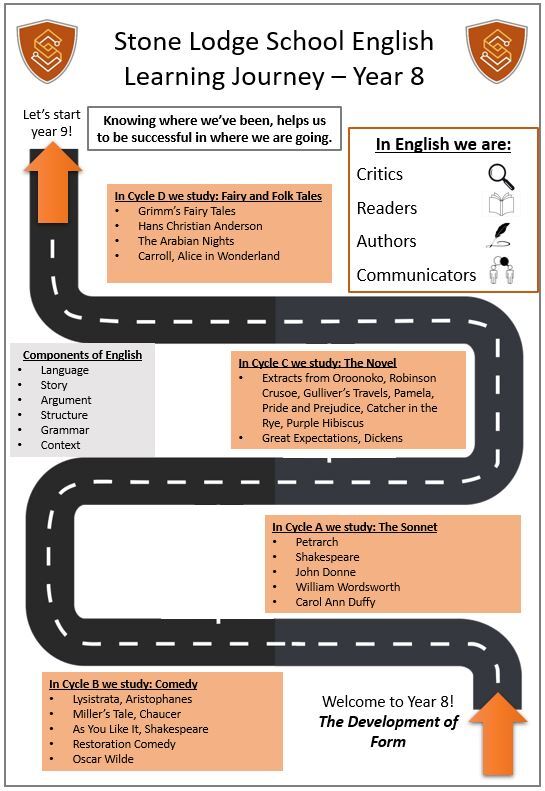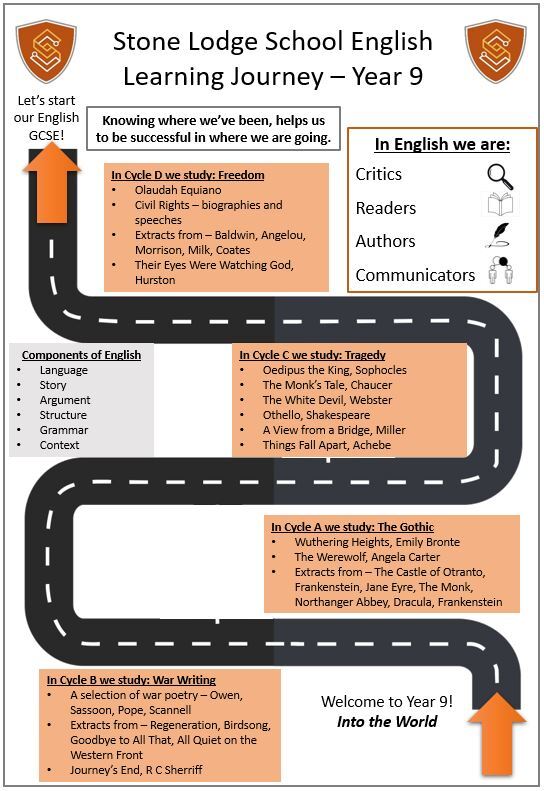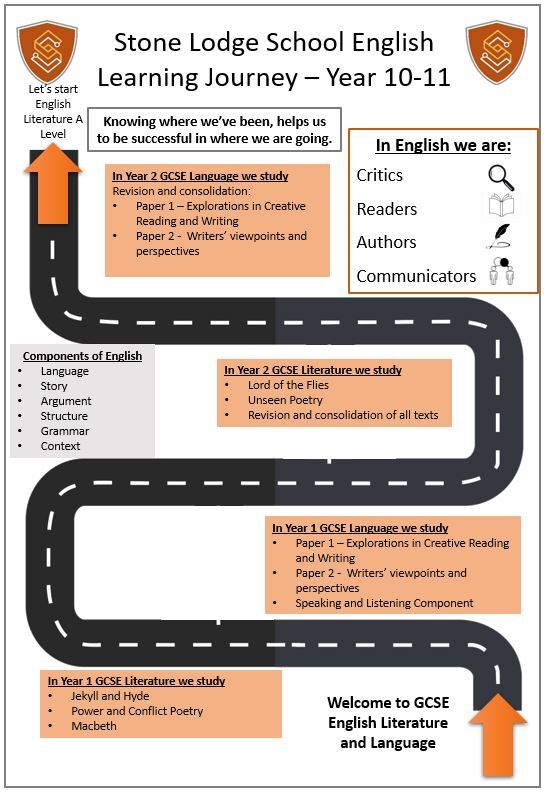English
Department vision
As a department, we aim to encourage the development of sensitive, articulate, and thoughtful individuals who can use language effectively and appropriately in a wide range of situations. We reinforce specific values and objectives that are linked with whole school aims. Our aim is to enable students to develop into sensitive, critical, and efficient readers who form the habit of reading for pleasure, interest, and information. In discussions and written work, we foster rational attitudes and arguments that are free of prejudice and supported by evidence.
Year 7
Year 7

|
Year 7: The origins of English |
|||
|
Ancient origins
|
Links to legends
|
The art of rhetoric
|
Romance
|
Year 8
Year 8

|
Year 8: The development of form |
|||
|
CYCLE A - The sonnet from Petrarch to Shakespeare to Donne to Wordsworth to Duffy and Dharker |
CYCLE B - Comedy through time
|
CYCLE C - The story of the novel
|
CYCLE D – Fairy and Folk Tales
|
Year 9
Year 9

|
Year 9: Into the world |
|||
|
CYCLE A - The Gothic tradition
|
CYCLE B - War writing
|
CYCLE C - Tragedy through time
|
CYCLE D - Freedom
|
Years 10 & 11 - English Language & Literature
At KS4 (Year 10 and 11), our focus is on preparing our students for the AQA English Language and Literature GCSE examinations. Our curriculum is designed to give students the skills and knowledge they need to become confident and effective communicators. We place a strong emphasis on developing students' reading skills, as well as their ability to express themselves clearly and persuasively through oracy. Additionally, we work to develop students' examination skills, so that they are well-prepared for the rigorous demands of both examinations. Through a variety of engaging and challenging activities, students will have the opportunity to expand their vocabulary, improve their grammar and punctuation, and build their understanding of literary texts from a range of different time periods and cultures.
Year 10 & 11 Subject roadmap for English Literature & English Language

Year 10
|
|
T1 |
T2 |
T3 |
T4 |
T5 |
T6 |
||
|
Year 10 |
Language (2 lessons per week) |
Language Paper 1 |
Language Paper 2 |
|||||
|
Q1 / Q2 / Q3 Explicit / implicit information Analysis language and structure |
Q4 Critical evaluation |
Q5 – Narrative and descriptive Writing |
Q1 / Q3 Explicit / implicit information Analysis of language |
Q2 / Q4 Summarising and comparing Comparing writers’ attitudes and methods |
Q5 Transactional writing |
|||
|
Literature (3 lessons per week) |
Jekyll and Hyde
|
Poetry Cluster 1 War Poetry WW1 and earlier Charge of the Light Brigade Exposure Bayonet Charge
Modern Warfare Remains War Photographer Women & families in war Kamikaze Poppies |
|
Poetry Cluster 2 Romantic poetry Industrial revolution / romanticism / French revolution London The Prelude Ozymandias Storm on the Island Poetry & society My Last Duchess Checking Out Me History Tissue Emigree
|
||||
Year 11
|
|
T1 |
T2 |
T3 |
T4 |
T5 |
T6 |
||
|
Year 11 |
Language (2 hours per week) |
Paper 1 / Paper 2 Revision and Practice |
Paper 1 / Paper 2 Revision and Practice |
MOCK EXAMS – November and February |
||||
|
Literature (3 hours per week) |
Lord of the Flies |
Unseen Poetry / Conflict Poetry Revision |
Literature Revision |
|||||
Advice for Parents & Carers
At KS3, encourage your child to read a variety of texts in English, such as books, newspapers, and magazines. This will help to improve their vocabulary and comprehension skills.
For students studying English at KS4, it is important to encourage your child to read widely and to focus on the analysis of texts. Encourage them to read critically and to think about the themes, characters, and language used in the texts. Parents and carers can also support their children by helping and encouraging students to prepare and revise for exams. Your child’s English teacher will be able to recommend study guides for both English Literature and English Language.
















